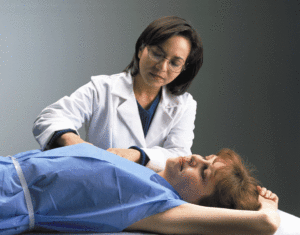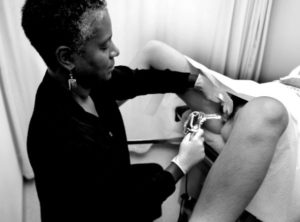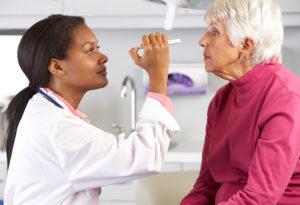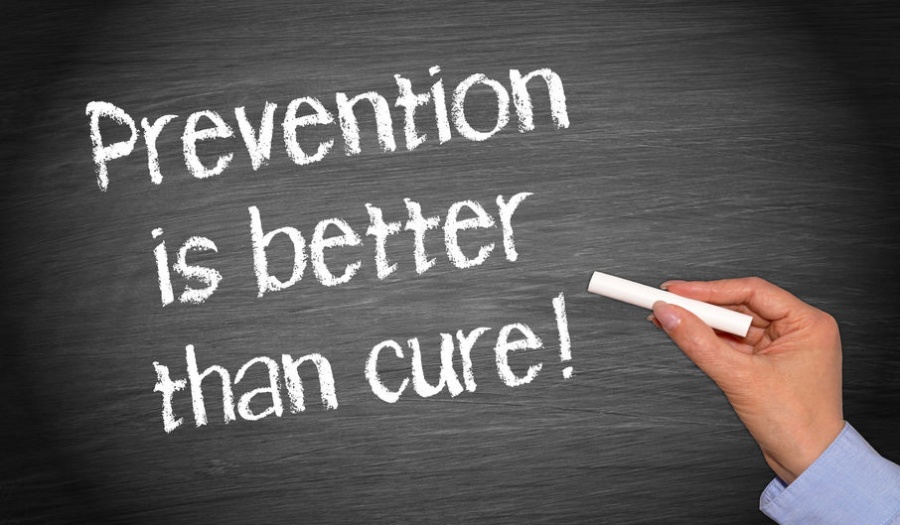There’s this popular saying, “Prevention is better than cure”. And when you live in a country with a barely functional healthcare system, like *cough cough*, it’s even more true than ever.
There really isn’t a value that can be placed on good health. Unfortunately it’s so easy to take it for granted. Many of us have heard stories about people who have woken up one morning in seemingly perfect health and slumped and died while carrying out their regular daily activities.
The unfortunate truth is that not every chronic or potentially fatal illness will present with obvious symptoms. Sometimes the symptoms are so small and easy to miss, sometimes there are no symptoms at all. Which is why regular checkups and preventive health screening is very very important.
I know that for many people spending money on doctors visits when they do not feel unwell is considered unnecessary, especially when they are given a clean bill of health afterwards.
However when something is picked up during a routine screening, it can go a long way in preventing a potentially fatal incident.
So i’ll just go on and list a few helpful tests to be done routinely.
Physical examination. This is basically getting looked over by a doctor. Doctors are trained to pick up on signs which may otherwise look normal but may be indicative of some underlying problem. This should be done at a doctor’s office every 2–3 years, to screen for diseases; assess risk for future problems; discuss lifestyle habits; and keep vaccinations up to date.

Blood pressure test. Many people assume that high blood pressure is reserved for elderly people, or people who are in stressful situations, however this is not exactly true. High blood pressure can be as a result of different factors, some of them genetic. The only way to identify high blood pressure is with blood pressure screenings.
Therefore it is important that starting from age 18, to get your blood pressure checked once a year if you have blood pressure between 120/80 and 139/89. If you have any family history of hypertension it may be a good idea to check your blood pressure more often. And if you have blood pressure of 140/90 or higher, discuss treatment with your doctor.
Breast health. Mammogram. This is like a special X-ray for the breast and should be done ideally every 1–2 years starting at age 40. Not all breast cancers are found on mammograms; a good clinical breast exam can also help identify cancers relatively early. A clinical breast exam is a breast examination done by a healthcare practitioner and this should be done about every 3 years for women in their 20s and 30s, and every year for women 40 and over.

Cervical cancer screening (Pap test).
This test helps identify women at risk for developing cervical cancer. It involves collecting cells from the cervix to look for any changes. You should get this done every 3 years if you are 21 or older and have a cervix. If you are 30 or older, you can get a Pap test and HPV test together every 5 years. if HPV testing is not available, they may get a Pap test every 3 years. The HPV test in combination with the Pap test is better at identifying women at risk for developing cervical cancer than the Pap test alone.
Screening may be stopped for women over age 65 who have been adequately screened with normal results and are not at high risk for cervical screening. If you have had your cervix and uterus removed, ask your healthcare provider if you need to continue screening.
Cholesterol test. Starting at age 20, get a cholesterol test regularly if you are at increased risk for heart disease. From age 35 it should be done every 5 years. Begin screening at age 20 if you smoke, are obese, have diabetes or high blood pressure or have a family history of heart disease as these conditions make you more likely to have high cholesterol. Treating cholesterol abnormalities can help reduce your risk of heart disease.
Colorectal cancer screening (using fecal occult blood testing, sigmoidoscopy, or colonoscopy) Starting at age 50, get screened for colorectal cancer.
Colonoscopy. This is basically a test where a camera is passed into the body (usually through the rectum, ya i know it sounds scary but remember that saying about prevention being better than cure) This should be done every 10 years starting at age 50. Alternatively, you may get a flexible sigmoidoscopy every 5 years or a double-contrast barium enema every 5 years or a CT colonography (virtual colonoscopy) every 5 years, but a colonoscopy will be needed if any of those results are positive. This test helps to identify (and remove) precancerous polyps or early cancers.
Another option for colorectal cancer screening is the fecal occult blood test; this involves testing the stool for traces of blood which can indicate some form of internal bleeding. This should be done annually starting at age 50 To provide an early warning sign about colon cancer. It’s not quite as good as a colonoscopy in identifying cancers or precancerous cells.
Digital rectal exam. Starting at age 50, every 5–10 years with each colon screening.To help find early signs of colon cancer in the anal canal and lower rectum. Because of its limitations, it is not recommended as the only test for colorectal cancer.

Diabetes screening. Get screened for diabetes if your blood pressure is higher than 135/80 or if you take medicine for high blood pressure. Every three years starting at age 45; more often or earlier if you’re overweight or at risk for diabetes.This helps to provide an early warning sign of high blood sugar levels, which could mean an increased risk for diabetes.

Sexually transmitted disease (STD) screening. All sexually active women and their partners should be tested for HIV and other STDs before starting sexual activity. Prevents spread of HIV and other STDs, many of which can only be detected through testing. HIV may sound like the big bad wolf of STDs, but there’s so many other dangerous STDs such as Herpes which also has no cure just like HIV, so it’s very important if you’re sexually active to get tested for other STDs including chlamydia, gonorrhea and syphilis.
This list is by no means exhaustive, and there are medical conditions that can not be prevented, however getting some of these checks done routinely, in addition to healthy lifestyle modifications can help save you and I from hefty healthcare bills in the future.






